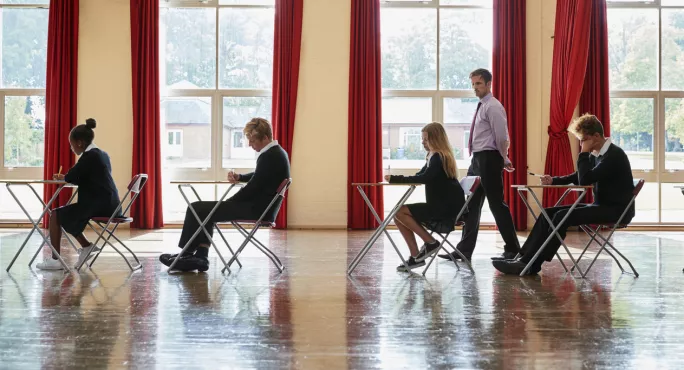Ofqual’s chief regulator has used a Tes interview to raise concerns over teacher workload from this year’s GCSE and A-level assessments.
Simon Lebus listed the problem as one of five key issues raised by respondents to its consultation on the grading process proposed as a replacement for cancelled exams.
The two-week consultation has had 65,000 responses so far. It closes on 29 January, with final plans expected to be finalised in the last week of February.
Exclusive: 2021 GCSE grades could be even more generous
News: Third Covid wave ‘could cancel GCSE and A-level exams’
2021 exams: Autumn grades boosted by summer ‘generosity’
Mr Lebus told Tes: “Teacher workload is an issue because I think there are concerns - and I share those concerns - about the fact that teachers are going to have to take on the heavier responsibility of managing this additional assessment on top of all the extra work they’re having to do to make up for lost learning time.”
GCSEs and A levels 2021: Concerns over appeals
Mr Lebus said exam appeals was also an issue that was “exercising people”.
The consultation has proposed that student appeals could be submitted immediately following the issue of results and would first be considered by schools and colleges.
External assessment tasks
The consultation also suggests that boards could provide schools with external assessment tasks as a form of evidence for teachers to use when assessing students.
“The issue of external assessment - whether they should happen, if they do happen, what form should they take, how optional should they be” had also come up in consultation responses, Mr Lebus said.
Private candidates
The consultation says that: “We recognise that, given the pressures on schools and colleges created by the pandemic, and the potential public health considerations, schools and colleges might be reluctant to make entries for and then assess private candidates this year.”
Mr Lebus said respondents had raised concerns about private candidates “quite often”.
Fairness
Mr Lebus added that the respondents had also raised “the more general issue of fairness, and I think people are very concerned to see that somebody in a school in Burnley is held to the same standard as a school in Brighton”.
“And that goes straight to the heart of: what are the quality assurance mechanisms? What degree of internal or external scrutiny will teachers’ grading judgements be subject to? And so on.”
